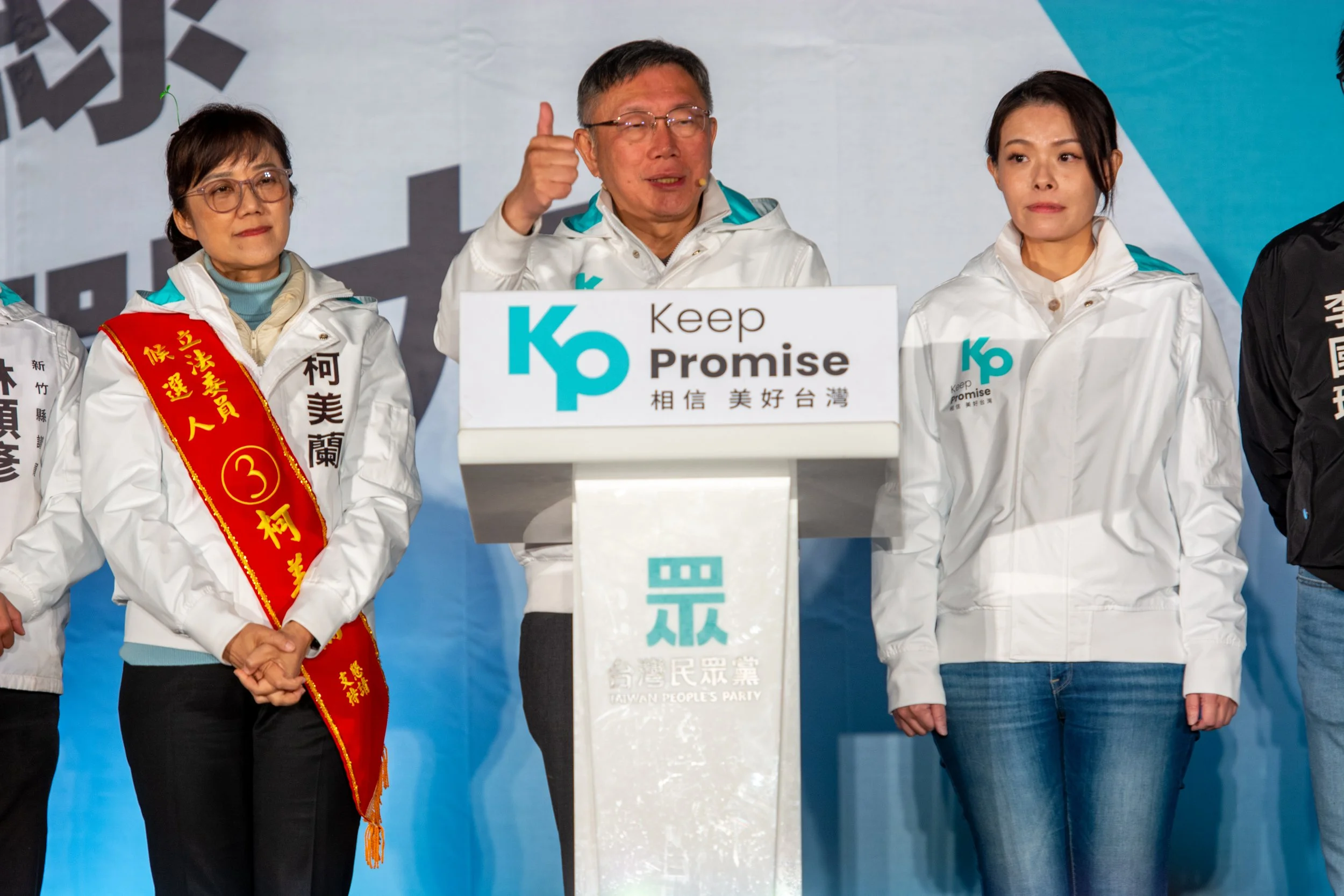Taiwan’s Ko Wen-je Released After One Year In Detention
Taiwan People’s Party founder Ko Wen-je (center) had been detained for just over one year (Wikimedia Commons).
Ko Wen-je, founder and former chairman of the Taiwan People’s Party (TPP), was released from detention on bail of about 2.3 million USD. His September 8 discharge was the most expensive for a political figure in Taiwanese history. During his entire yearlong detainment, Ko was prohibited from communicating with outsiders.
Ko entered politics in 2014 after spending three years as a surgeon. That year, he defeated Taipei’s previous mayor by almost 250,000 votes; by 2017, he had reached approval ratings of almost 70 percent. Ko primarily focused on housing justice, financial discipline, and updating local infrastructure. Across his eight years, his administration paid off more than 38 percent (almost two billion USD) of the city’s debts. Part of Ko’s success is attributed to his social media savviness—unlike traditional politicians, Ko purposely appeals to younger generations, from producing hip-hop videos to recording viral TikTok dances. However, Ko has also faced significant controversy over the years. His characteristically blunt rhetoric and public support of Taiwan-China relations have both appealed and repulsed potential voters.
Ko was first detained by Taiwanese authorities on August 30, 2024, following police raids of his home and office. Prosecutors accused him of accepting a bribe worth almost 570,000 USD while serving as Taipei’s mayor. He has also been charged with embezzling political funds during his unsuccessful 2024 presidential bid. If found guilty, he faces up to 28.5 years in prison.
Ko’s return will add to the ruling Democratic Progressive Party’s (DPP) woes. As a vocal opponent of President Lai Ching-te, Ko will likely attempt to rally the Taiwanese public against the Lai administration. In fact, he has already accused the DPP of political persecution and allowing the island to be “torn apart by division.” Unsurprisingly, Ko has also pointed to his yearlong detention as evidence of political persecution—describing his detention as “suffering” and a “miscarriage of justice”—and has maintained his innocence in all of the cases. The prosecution’s actions have only fueled his rhetoric by attempting (and failing) to revoke his bail.
Ko’s TPP has also frustrated Lai since he entered office. By voting with the Kuomintang opposition, the TPP has stalled the president’s efforts to pass legislation. In an attempt to break the government’s gridlock, President Lai failed to recall 31 Kuomintang legislators in July and August. The controversial decision has made Lai more unpopular than ever: approval ratings have fallen 24.7 percent since his election in May 2024.
As the founder of the TPP, Ko could easily make a political comeback. However, he has not publicly stated what his next steps are. It is still unclear whether Ko will resume his position as TPP chairman, although interim chairman Huang Kuo-chang has continuously professed his loyalty to Ko. Since Ko’s release is still recent, it also remains to be seen if the Kuomintang will change its attitude towards the TPP. However, Ko still has a loyal base of supporters. As long as he continues to counter DPP messaging, he will appeal to discontented voters.

